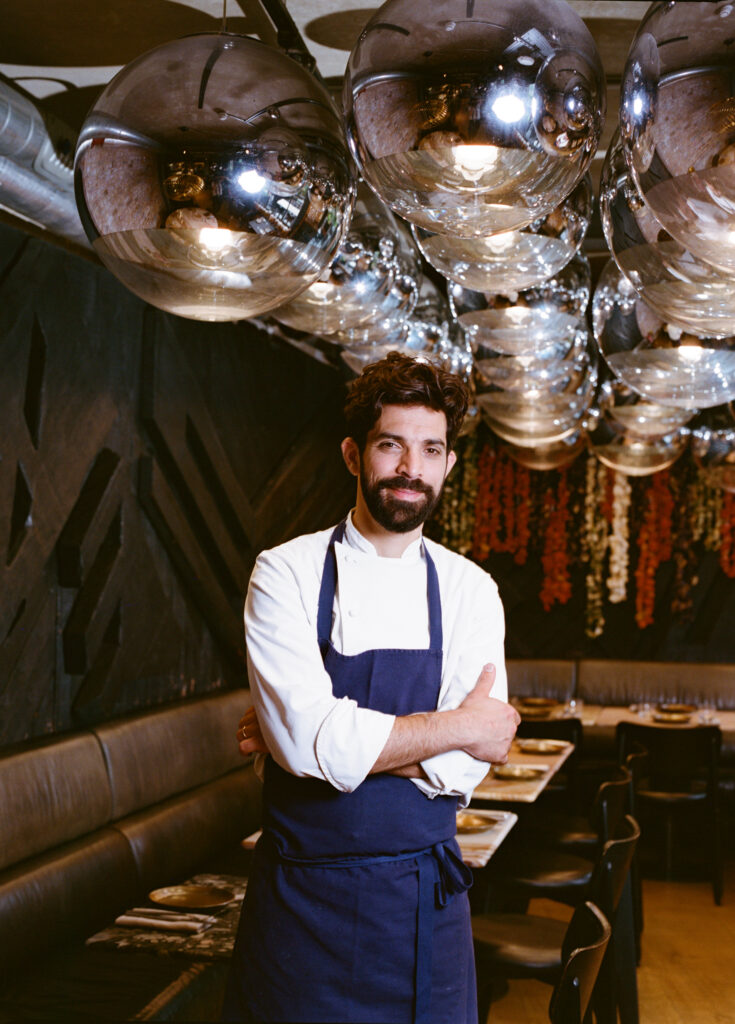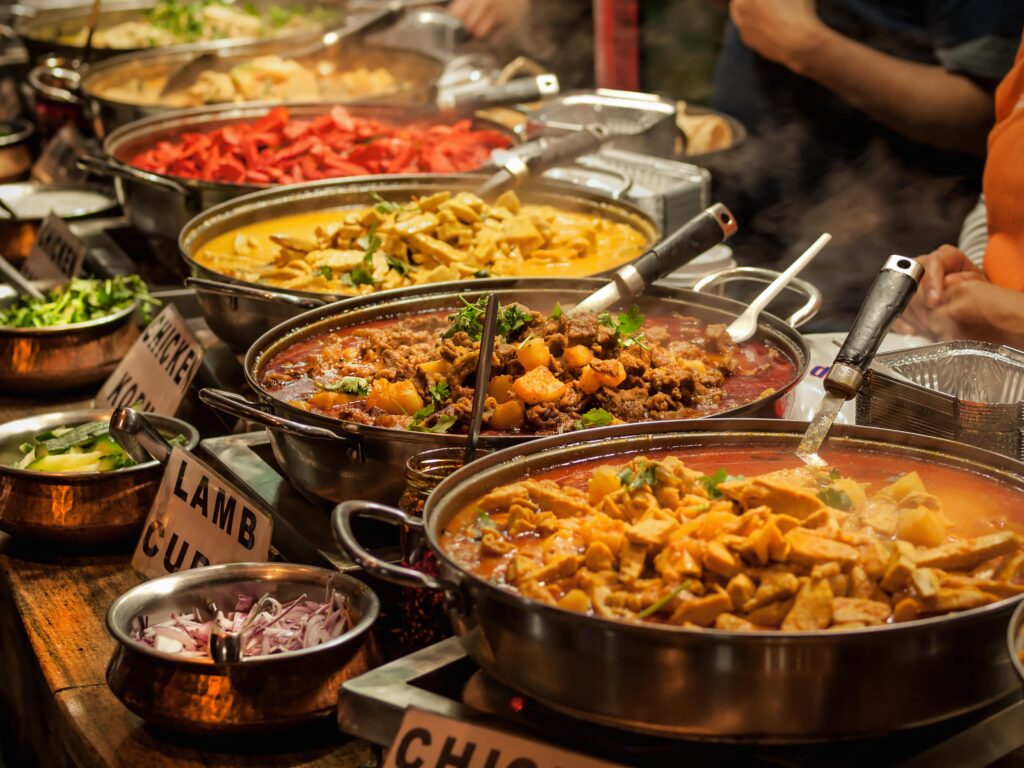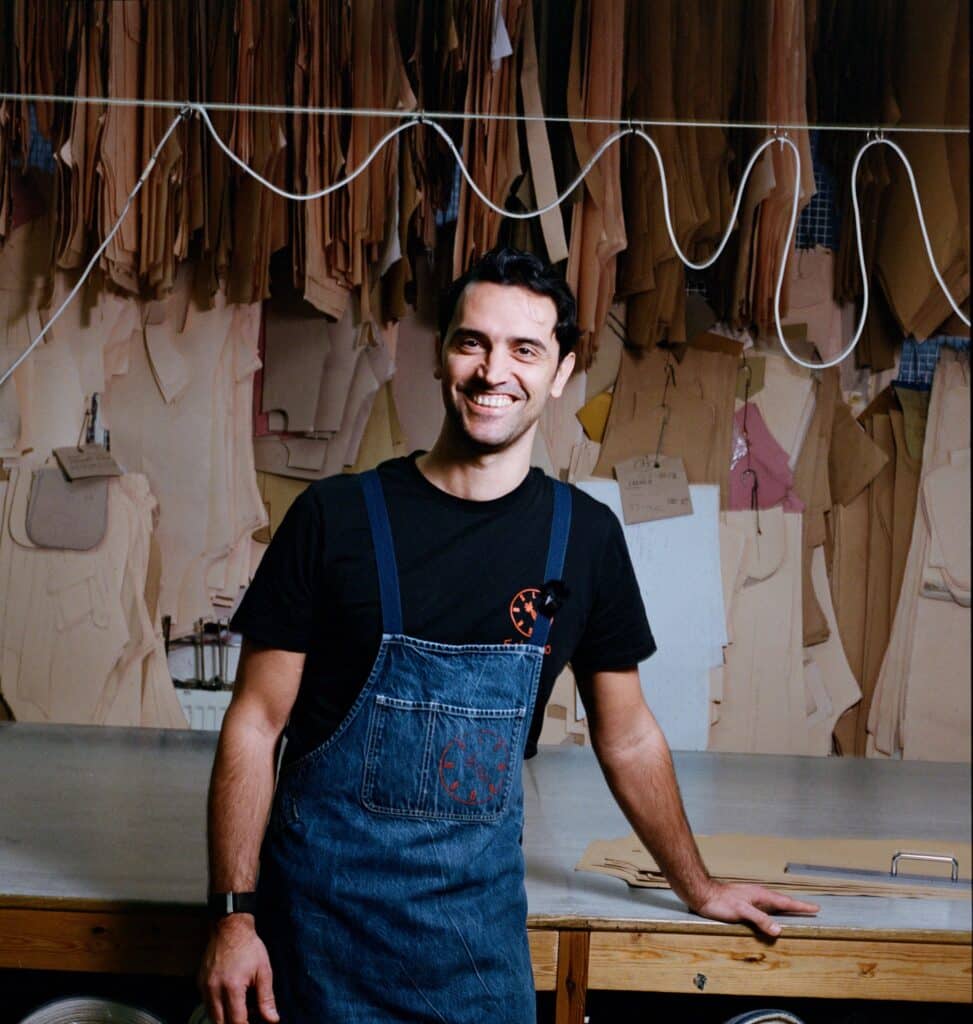When you first research Coal Office, two names come up: Assaf Granit and Tom Dixon.
In the world of contemporary Israeli cuisine, Granit needs no introduction. With 14 restaurants across the world, one of which holds a Michelin Star in Paris, he is one of the largest ambassadors of Middle Eastern cuisine in the West. Tom Dixon CBE is a designer based in London whose firm designed, from the basement up, the building they share with Coal Office.
Chef Dan Pelles has led Coal Office since 2022, collaborating closely with chef patron Granit and All Greens to bring innovation and seasonality to the menu.
I had been to Coal Office twice before for dinner, sitting along the counter that stretches the length of the open kitchen, with an unsurpassed view of the fire pit, the perfect spot to appreciate the drama and theatrics of the kitchen in service. But coming on business meant entering through the basement, outside of opening hours, effectively peeling away the veil of performance to glimpse the careful choreography underneath.
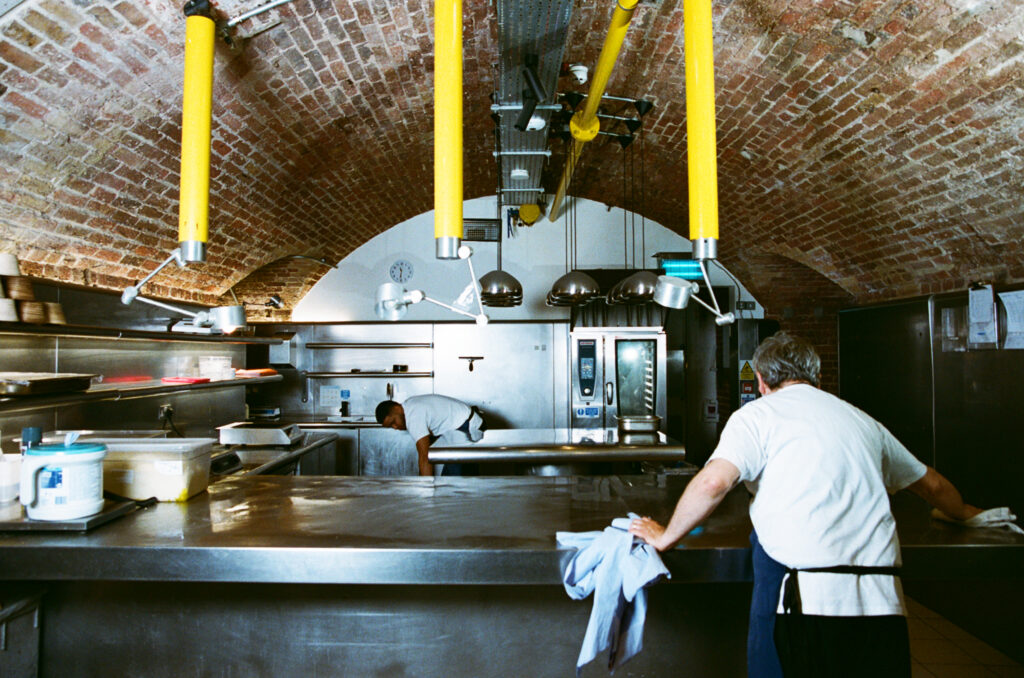
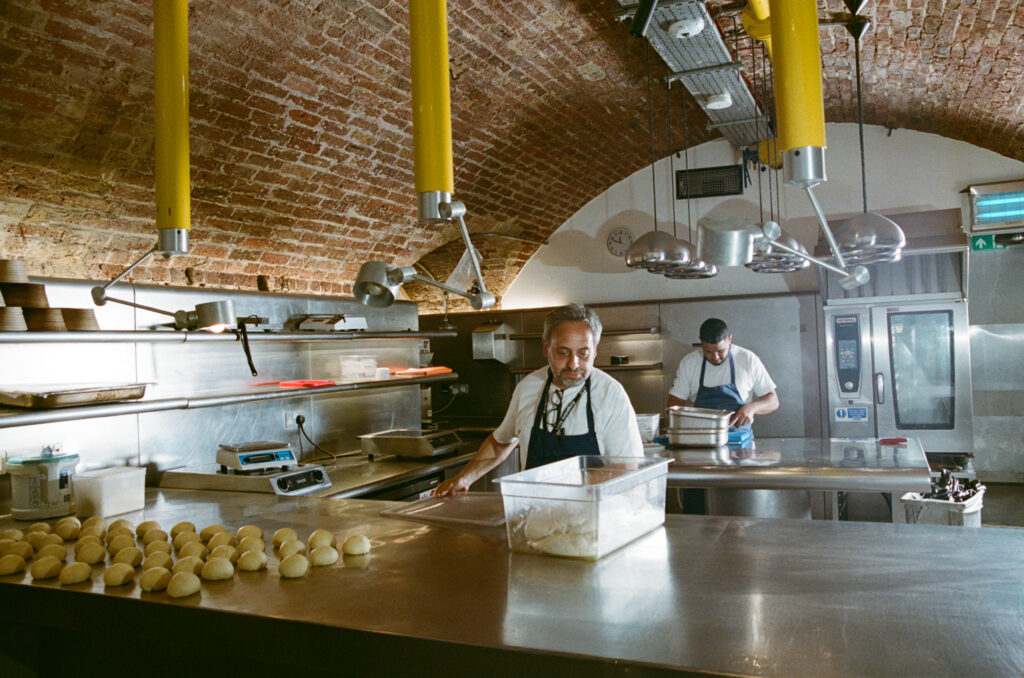
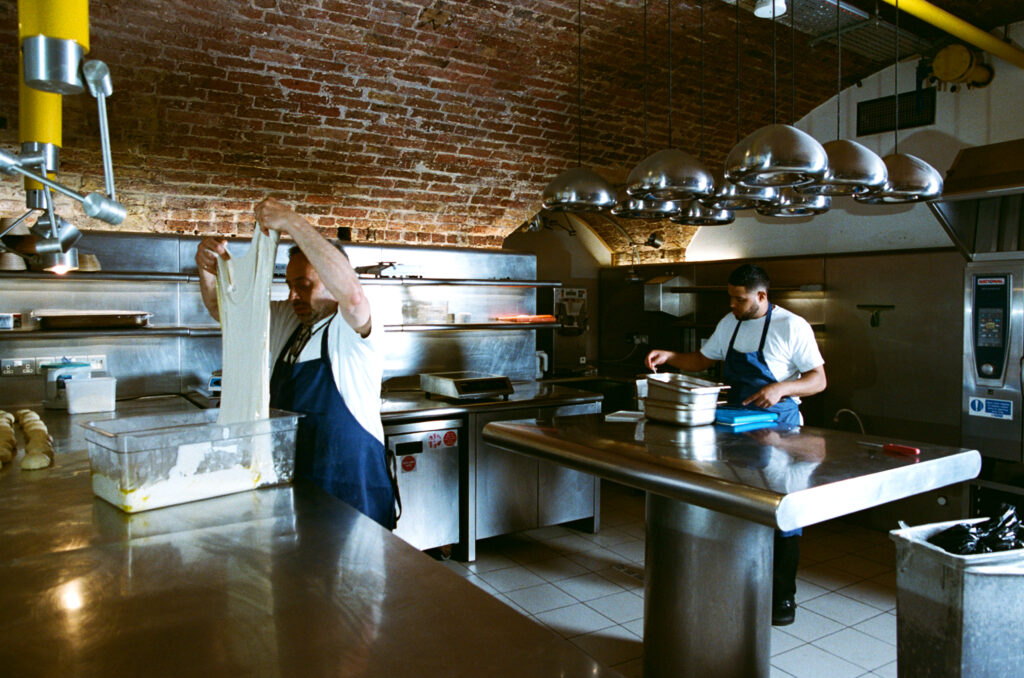
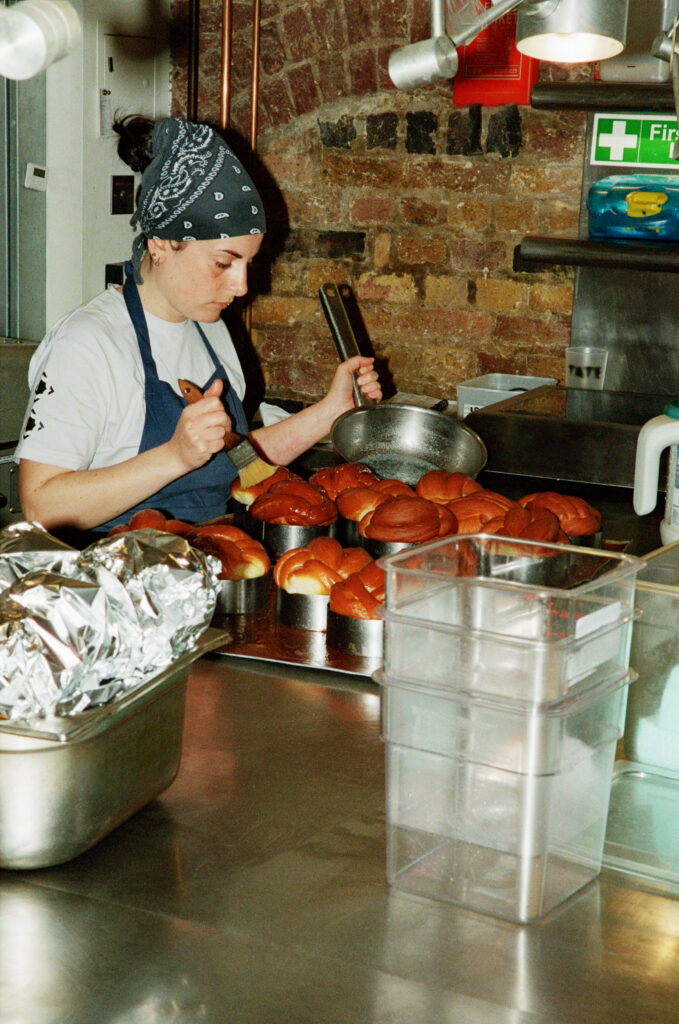
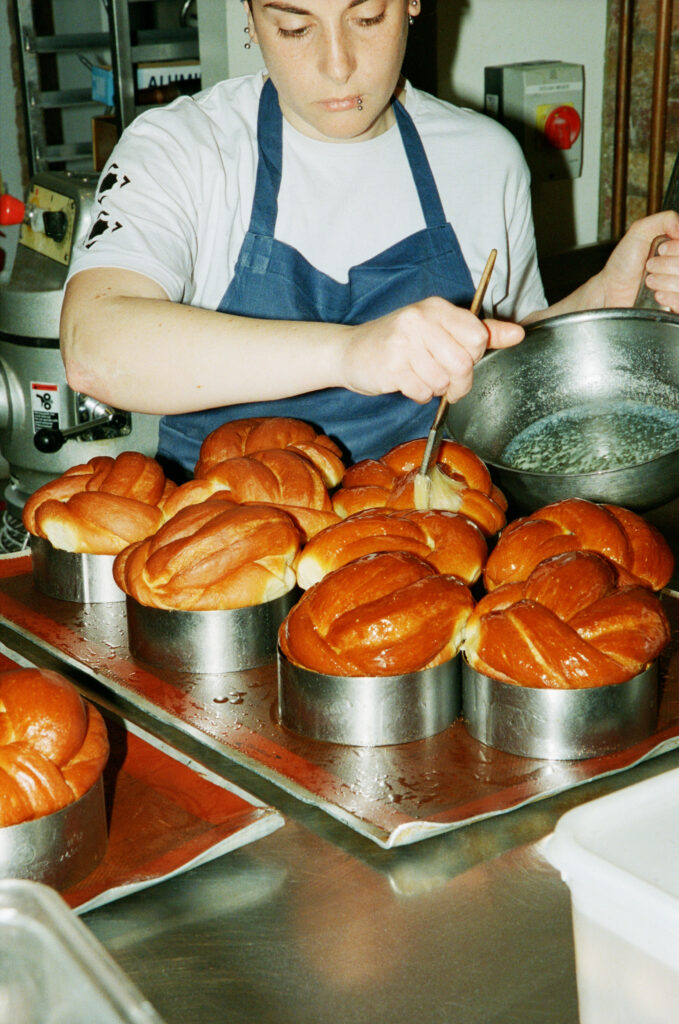
After walking through a narrow corridor that feels more like slick office space than a restaurant basement, you emerge into the prep kitchen and are hit immediately by the scent of kubalah (a Yemenite brioche), fresh from the oven. The brick arch above the prep kitchen is a stunning architectural statement, unlike any other basement kitchen I have visited to this day. We pause a moment to take in the space before heading upstairs, where we meet Dan. He’s busy prepping the daily specials, charging up and down the staircase at a brisk pace; he appears in the upstairs kitchen to taste a sauce and to cast a discerning eye over the chef de partie filleting monkfish before he’s off again, flitting between the basement kitchen and his office like a gust of wind, ensuring that everything is in place before service.
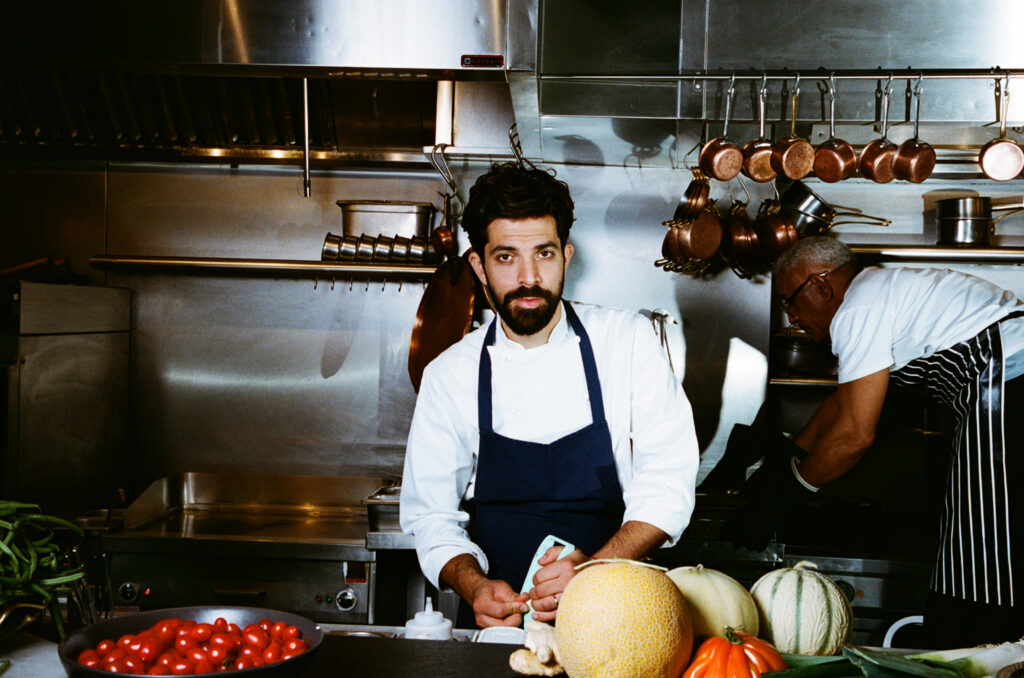
When he stops to take a breath, he leads us to the roof terrace, where, in the sun and away from the bustling kitchens, we sit down for a chat.
T: Dan, can you tell me how you first got started in the kitchen?
D: As early as six years old, cooking dinners at home. My mum taught me everything I know. At least back then. At age 13, I joined a small restaurant where my dad used to eat lunch every day. It was a small Italian restaurant in Tel Aviv. I started by washing dishes. Every summer I went to work there after school, I naturally promoted from washing dishes to washing vegetables and peeling them to cleaning seafood and then, At the end of that last summer, I was already working lunch service.
After the army, I was contemplating what I should do and then a high-end cooking school in New York (Culinary Institute of America) was recommended by a colleague of my brother.
Cooking was always very passionate in my heart, I was always cooking, even when I was in the army on weekends, I used to cook for my friends, and everybody knew I was into food, then I decided that was my real true passion. And I decided that if I’m gonna do it, I’m gonna do it as by the book as I can with no shortcuts. And luckily enough, with the support of my parents, I was enlisted there in New York and ended up working in a three Michelin star restaurant (Jean-Georges), in New York for almost seven years, moving up the ranks.
While going between the upstairs and downstairs kitchens, I notice how hands-on Dan is, showing his sous-chef the exact way he needs to hollow out an artichoke for the daily special.
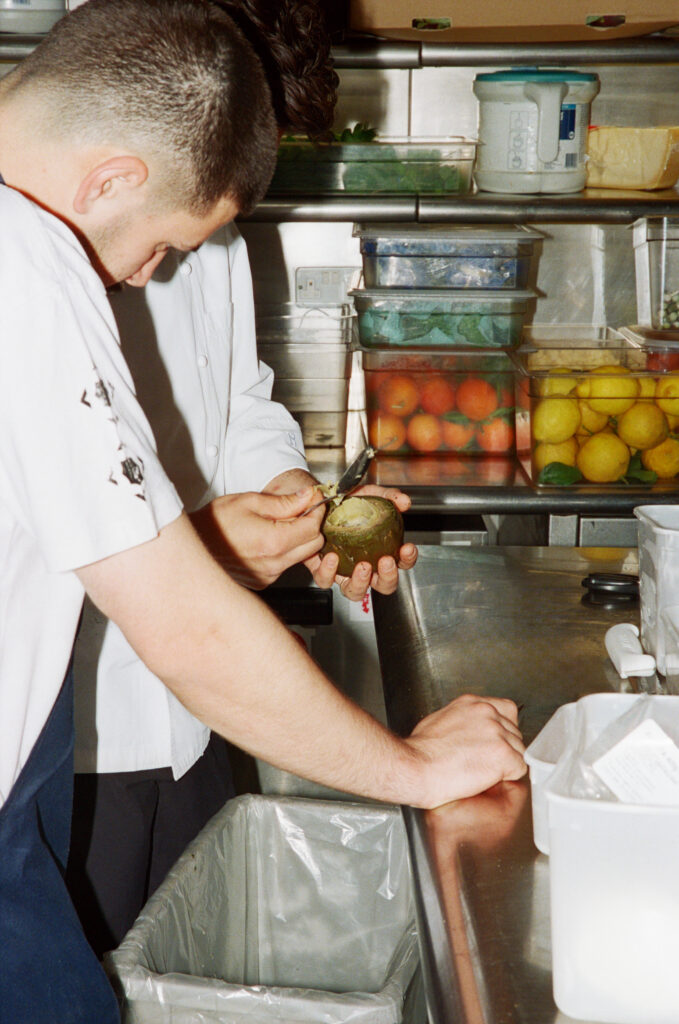
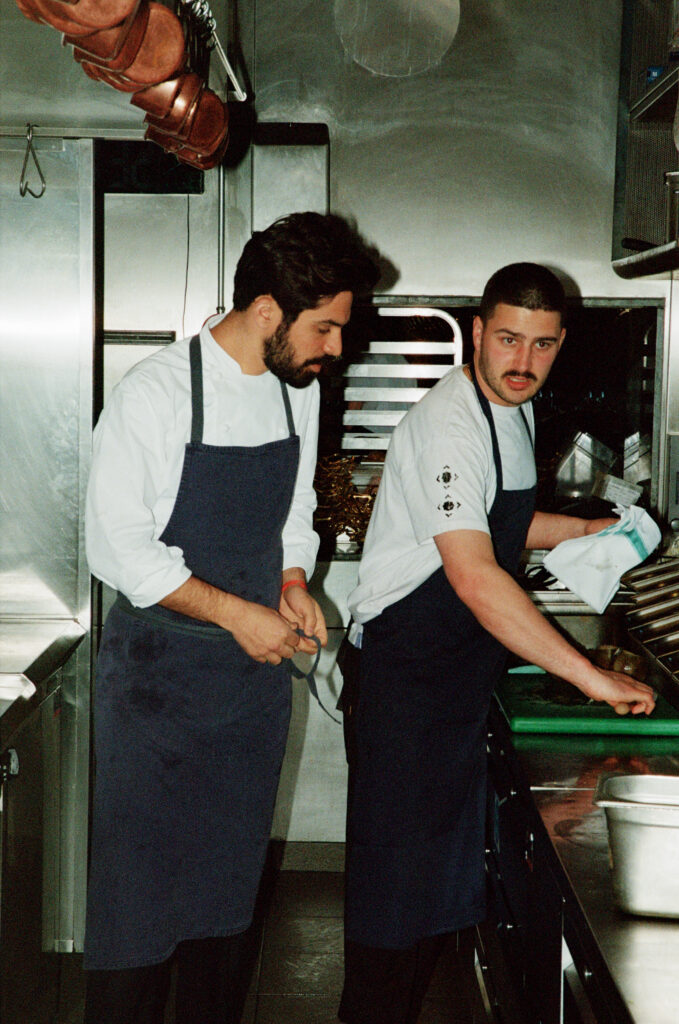
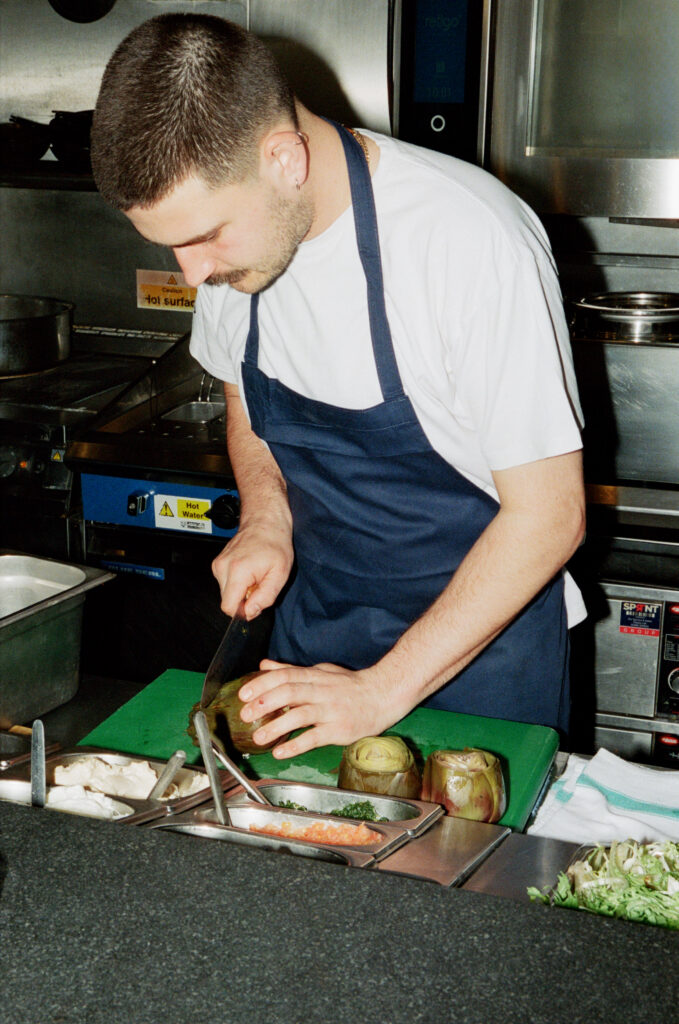
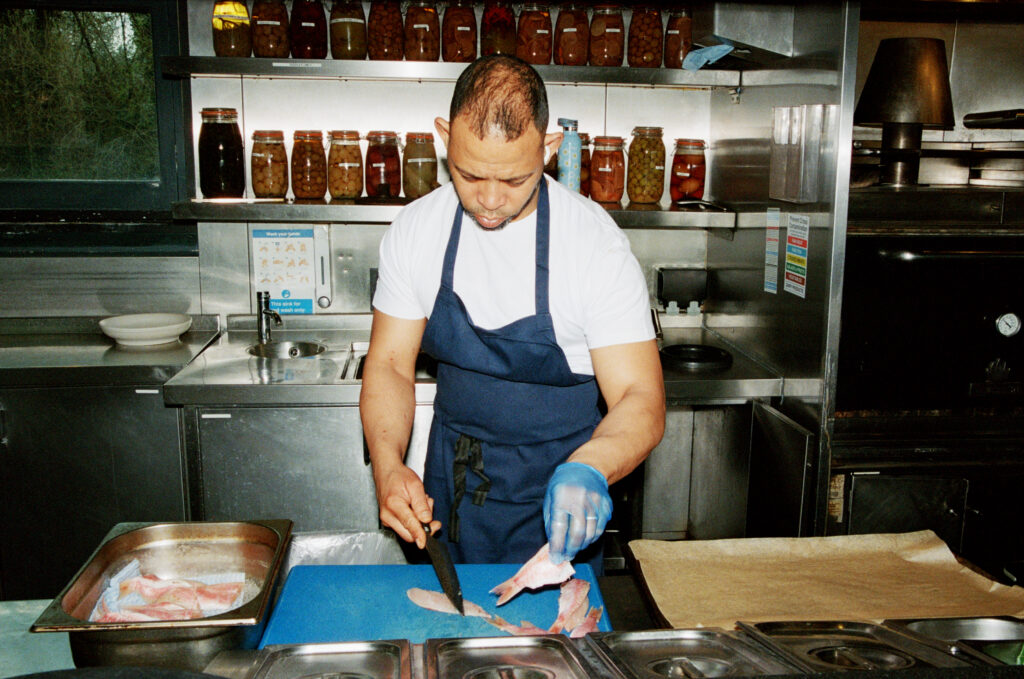
T: How did you come across working with Assaf Granit?
D: It’s actually a great story because we started filming a show in Israel that I joined as a competitor and Assaf has been a mentor in that show for many years, it’s one of the most well-known things he’s doing on TV in Israel. I had antagonistic feelings against reality TV specifically for cooking shows because I thought it was like the fast track and as I said, I’m very by the book. But it was COVID, and I stopped in Israel. My plan was to move to London with my wife, she got a relocation option from New York to London, and we said, let’s do that. We stopped in Israel for just three months to spend some quality time at home with my family. I hadn’t done that in ages, almost a decade.
We got stuck in Israel because of COVID and quarantine. I was unemployed for six, seven months, which is a huge difference from my daily life beforehand.
I remember one day, I was scrolling down my Facebook page, and there was a post for auditions for Game of Chefs (משחקי השף), and I said the heck with it, let’s just apply, out of boredom almost. My nature is very competitive so once I started, I was like, I’m gonna win this thing.
And I got to the finals and through the shooting of the show, Assaf and I had good chemistry, he basically asked me what my plan was and I told him about London and he said, well, I have a restaurant in London so one thing led to another and then I moved to London to work here.
T: How does the collaboration between Head Chef and Chef-Proprietor work between you and Granit?
D: We work hand in hand on the menu. We develop ideas together. I’m here physically, so quality control and all of that is down to me, but I consult with him about everything and obviously he has the last word. The beauty of it is that, yes, he’s my chef, he’s my boss, and it’s a partnership we do together. And I think that’s what made me so fascinated about working with him.
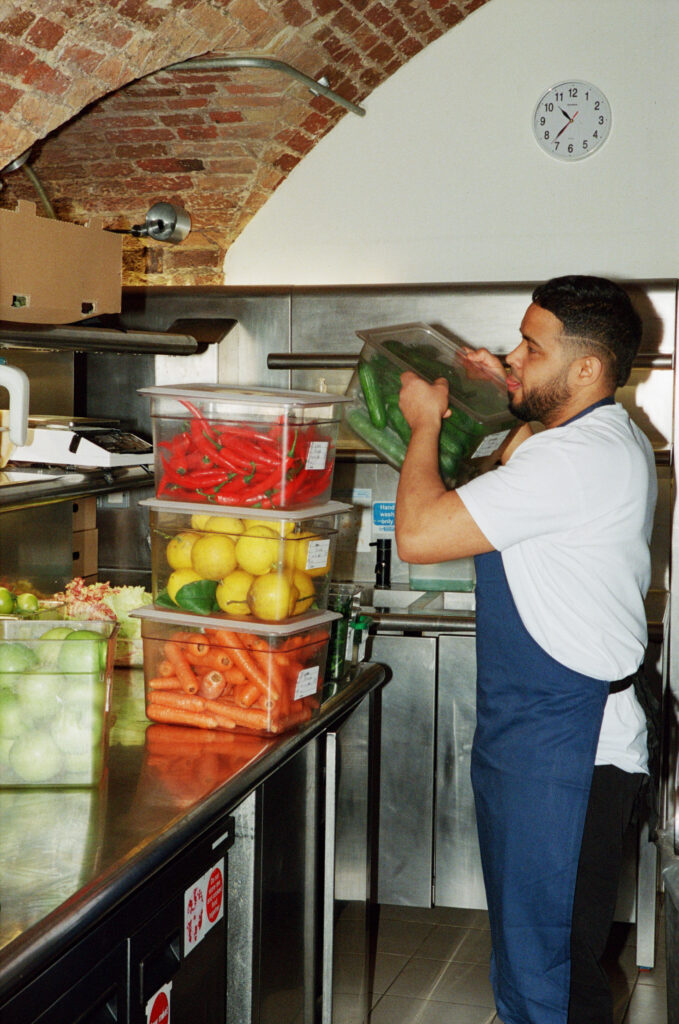
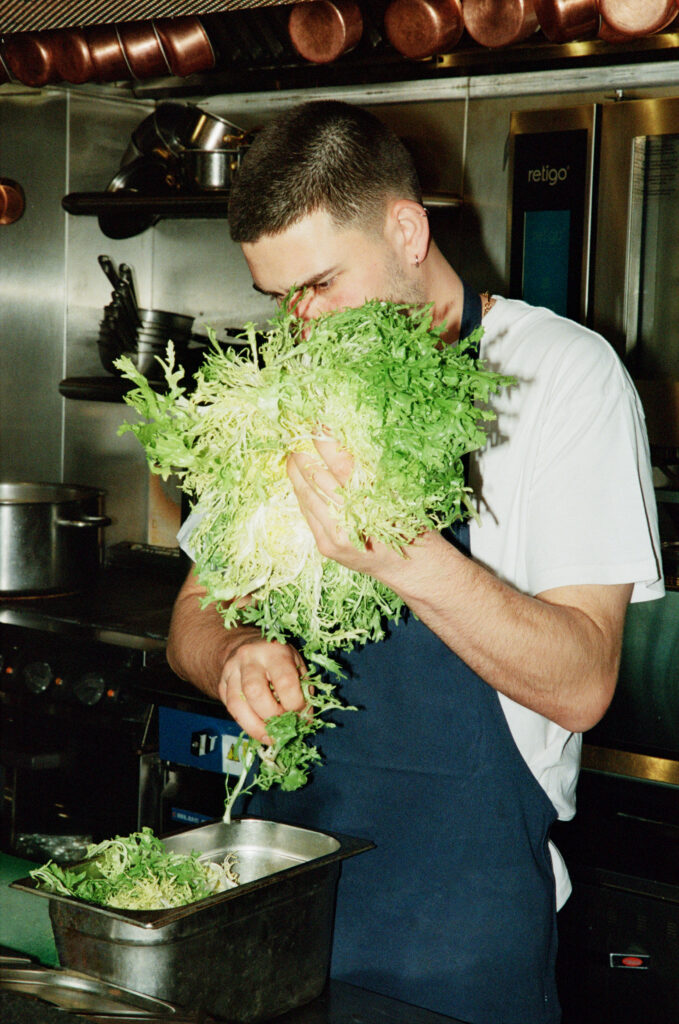
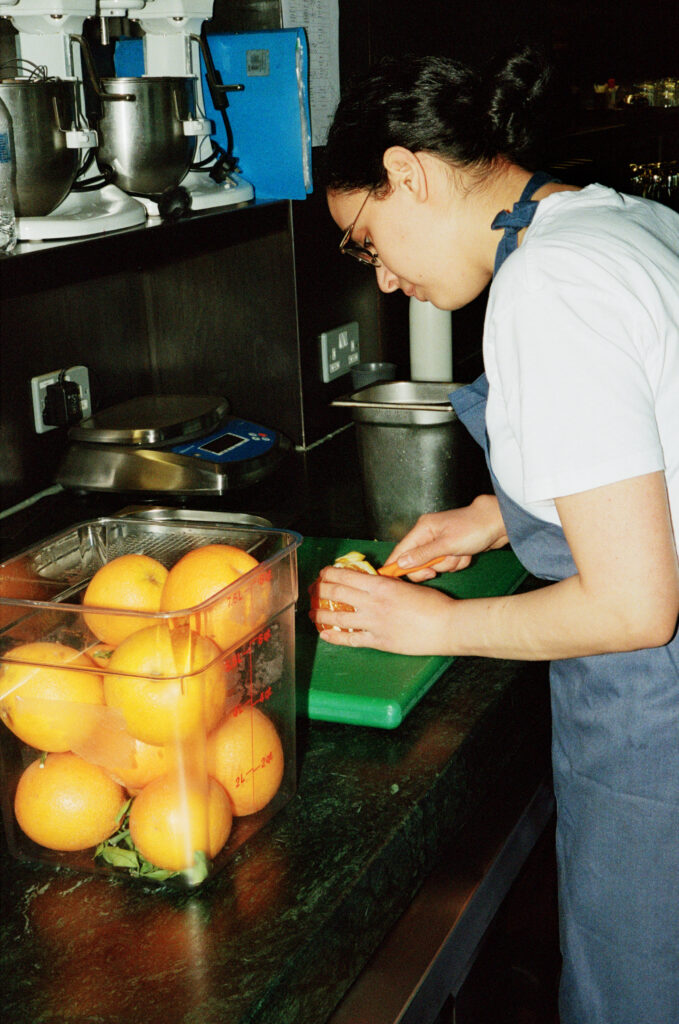
T: How does your relationship with All Greens affect your creativity throughout the seasons?
D: I call them my Mediterranean niche supplier almost, because Kamil, you know, he’ll bring me green almonds from Lebanon and Fakous, which is like the light green cucumber and fresh herbs from Turkey and all of that comes into play because it’s as close as I can get from home, which is super unique, because to be able to bring these ingredients to the UK table and match it with a very, like typical UK dish is for me like magic. […]
We don’t think about the menu in terms of like, this is this great fish now in season or Wow, this wonderful piece of meat, we go by vegetables, like, all right, there are green almonds now. What can we do with them? And if it’s just the green almonds as they are with some other vegetables inside and a cool vinaigrette, great, but if it’s matching them with scallops or shrimps, if they are in season, we do that.
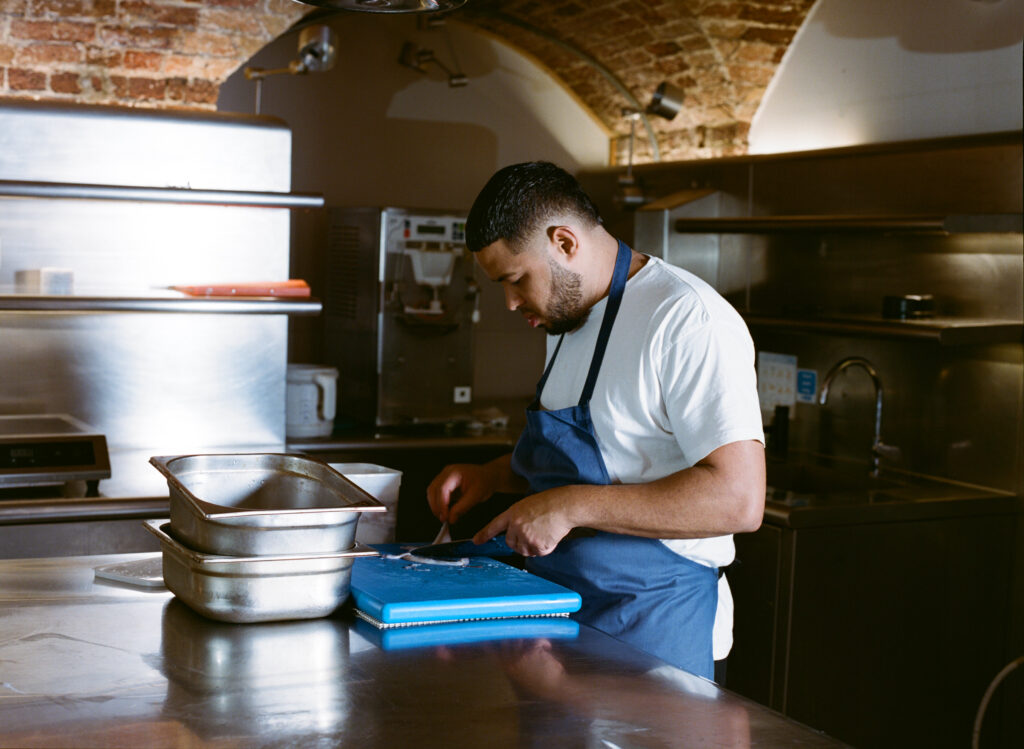
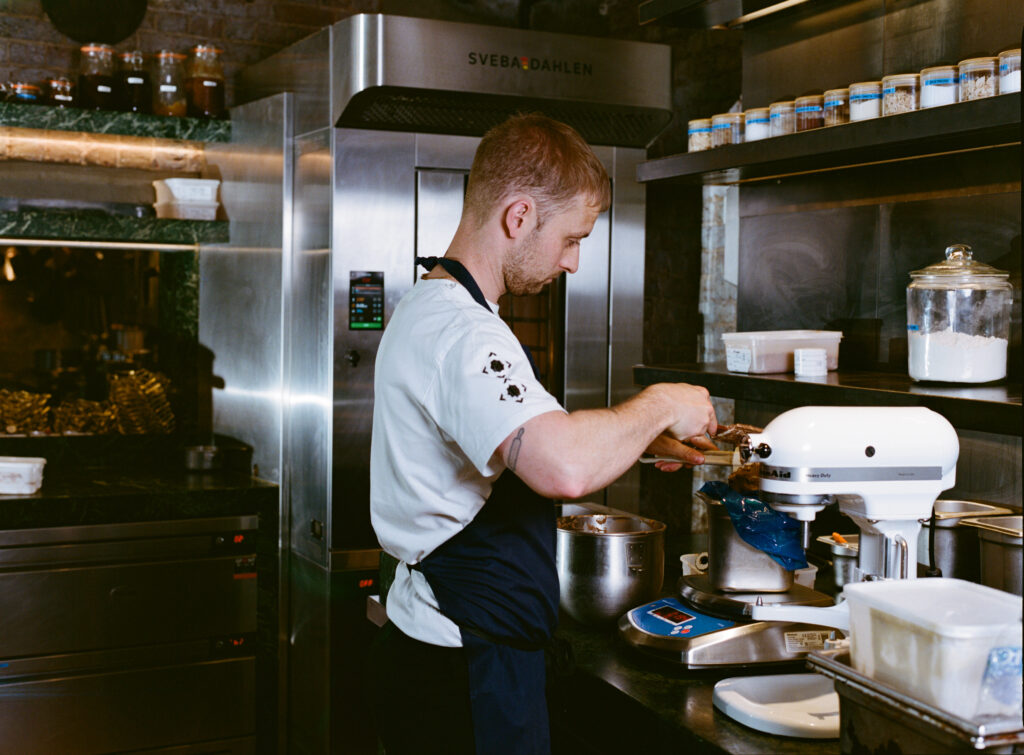
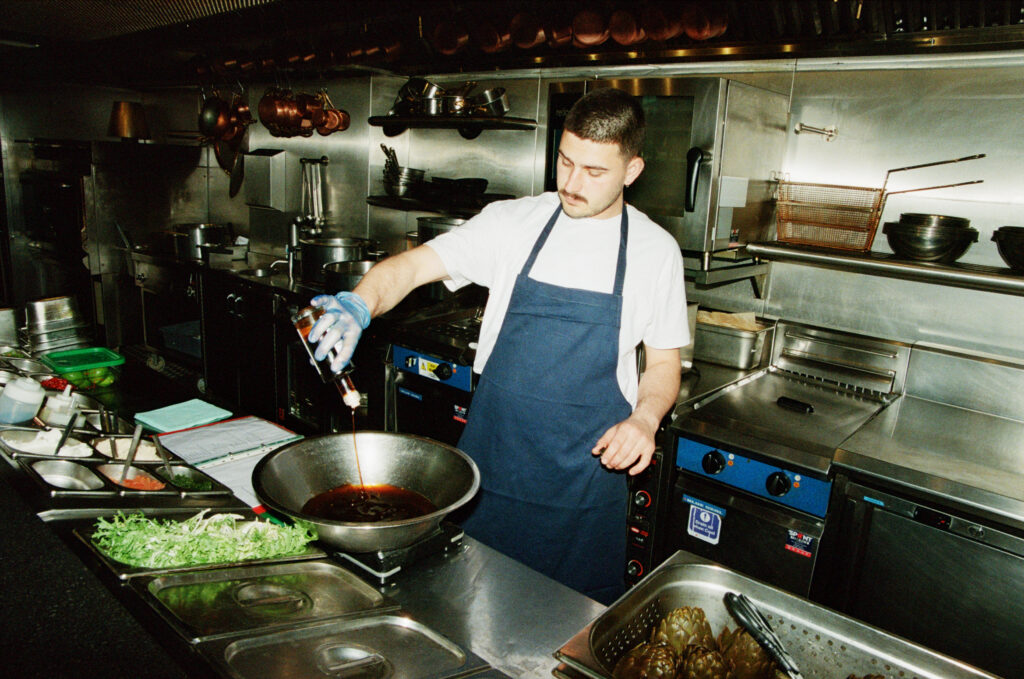
We are most definitely not a vegetarian restaurant, and I don’t want people to get that impression because a lot of times Mediterranean cuisine is paired with the thought that it’s like 90% vegetables. It’s not the case, but I do think that our thought process and the connection is towards the vegetables, and it’s also connected and correlated to our mothership Machneyuda (Granit’s flagship restaurant in Jerusalem) which is named after Mahane Yehuda market (also in Jerusalem), which is in its essence are the best vegetables you can get, and that’s footsteps away from that restaurant, a two minute walk from the market.
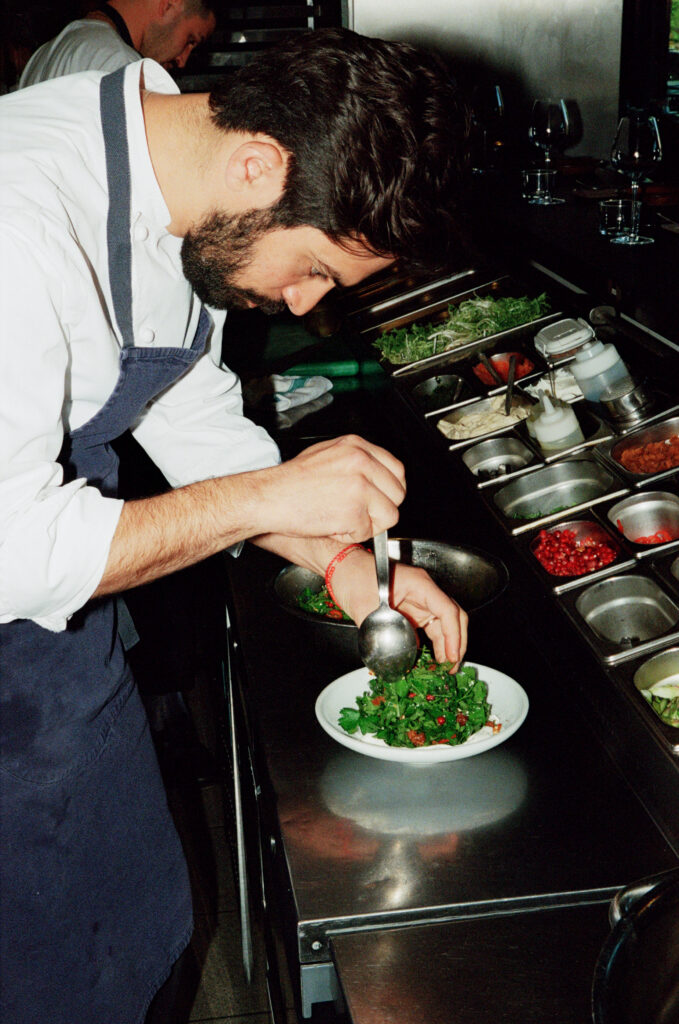
As we come downstairs from the roof terrace where we conducted the interview, the clock strikes noon and the restaurant is filling up, it’s show time for Dan and his team. He positions himself behind the stove, in full display of the dining room, and waves us farewell with one hand while the other unhooks a copper base pan hanging above the stove and places it on a burning blue flame.
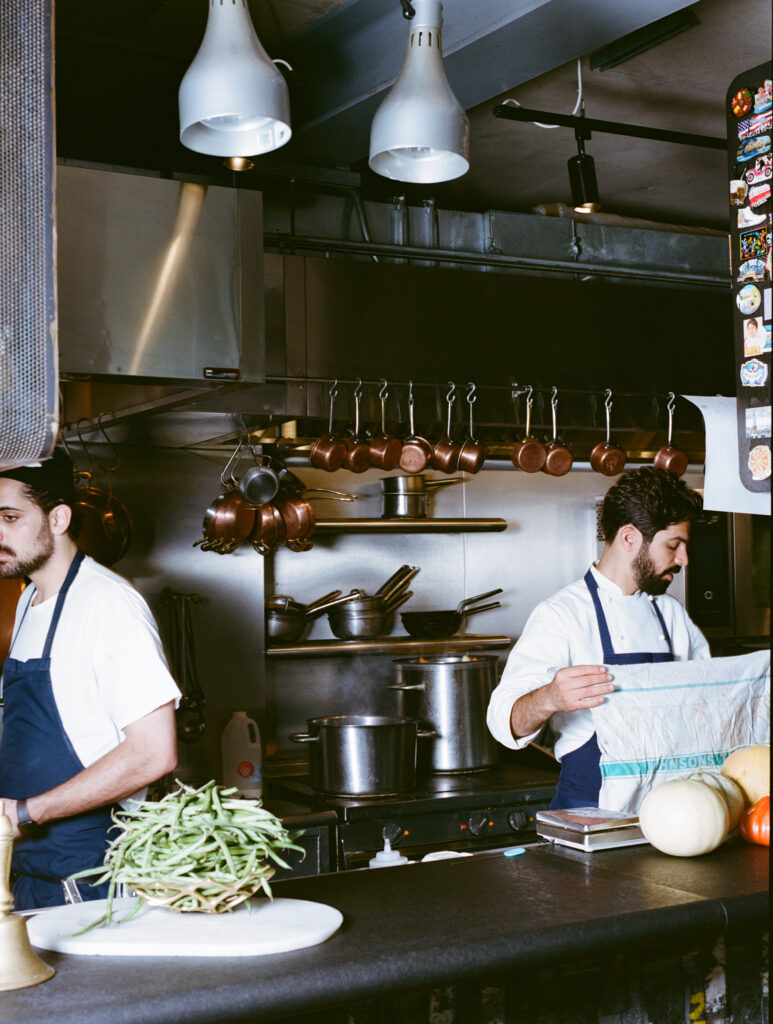
Want to experience Coal Office’s unique take on Mediterranean and Levantine cuisine for yourself? Reserve a table and explore their menus here.
Photos by Tristan Benhamou.
